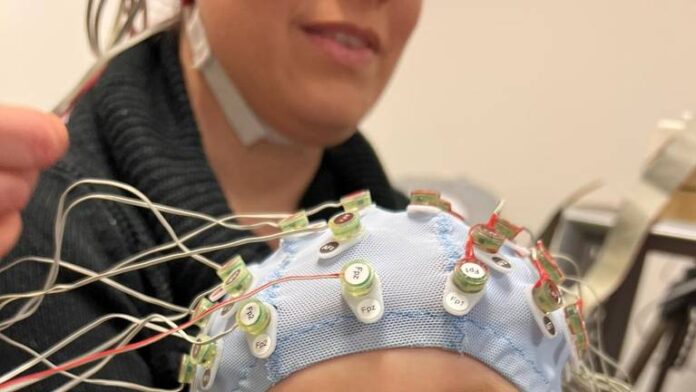
You may know them: parents who seem to pay more attention to their cell phones than to their babies. Research from Tilburg University has shown that the bond between parent and child can suffer from intensive smartphone use. Especially in the first year of life, it is very important to put your phone away more often and give all your attention to your baby.
Researcher Marion van den Heuvel: “Just yesterday I saw a mother with a stroller: the baby wanted to show all sorts of things, but the mother didn’t notice because she was on her phone. Being present and really responding to your child is very important.”
“All the children reacted negatively to it.”
Fifty mothers and their infants were followed during the trial. Both mothers and babies wore EEG caps, a cap with a variety of sensors. Through these caps, the researchers were able to see the brain activity of mother and child. “During the study we noticed a distinct difference between moments with and moments without contact,” says the researcher.
Moments without contact caused a strong reaction in the babies. “It varies a little bit per child but basically all children react negatively, by crying or attracting attention”. The researcher points out that it’s fine for parents to look at their phones, but they should ask themselves if it’s really necessary.
Lack of connection has consequences
“When your child starts making sounds and pointing things out, they really want to share something with you and connect. And if you are on your phone too often at that time, the baby tries to make less contact”. Therefore, according to Marion, it is really important to be completely there for your baby at such times.
There is no data yet on the long-term effects, but it is certain that too much phone use can lead to a bad bond between parent and child. “That bad bond definitely has consequences for later”, she says.
The researcher reiterates, “It’s not bad to look at your phone, but be there for your childr when it seeks your attention.”
Source: Omroepbrabant.nl
Translated by: Anitha Sevugan















